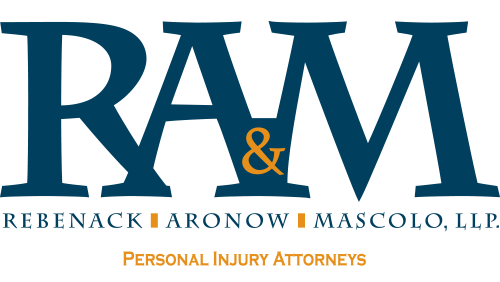Types of Evidence You Should Gather Following a Truck Accident
When you’re involved in a truck accident, the other driver may be at fault, which would make them liable for your injuries and other expenses that you might incur as a result of the accident. In 2018, more than 175,000 people were injured when involved in a truck accident, which is an increase of nearly 70,000 since 2010. In the event that another individual was at fault for the accident, the success of your case depends on the amount of evidence you can provide.
Proving Fault After a Truck Accident
Proving fault following a truck accident can either be simple or complicated depending on the details of your specific case. In some situations, the fault is clear and can be easily proven based on police records and even footage of the accident. On the other hand, there are times when fault is difficult to prove and may require numerous pieces of evidence. New Jersey is considered to be a no-fault state, which means that you’ll typically need to file a claim with your own insurance provider.
However, there are times when a standard insurance claim won’t provide the amount of coverage that you’re looking for. It’s also possible that your claim will be denied. In these situations, you may want to consider filing a personal injury lawsuit, which may allow you to seek the compensation that you believe you’re owed. In New Jersey, a statute of limitations exists for lawsuits filed pertaining to truck accidents. For the majority of situations, an individual has two years after the accident to file a lawsuit. In the event that a lawsuit is filed after the two-year deadline, the case will almost certainly be dismissed.
Types of Compensation You Could Claim
When you file a personal injury lawsuit pertaining to your truck accident case, there are many different types of compensation that you could claim. This compensation could be paid by the other driver’s insurance company or by the driver themselves. If you’re injured in an accident, the most common form of compensation involves medical expenses. The covered expenses include any payments pertaining to pain medication, physical therapy, and hospital stays. It’s possible for an injured individual to require long-term care, which means that they may need to request compensation for future medical bills related to the main injury.
Along with medical bills, it’s common for plaintiffs to request compensation for lost income. In the event that the injury resulted in the plaintiff missing work while recovering from the injury, the damages could cover any loss of wages. You may be able to seek damages for pain and suffering as well. This term refers to any emotional trauma or physical trauma that resulted from the accident. While it can be difficult to calculate damages for pain and suffering, many insurance providers have a set calculation that they use.
Though rarely awarded for cases involving trucking accidents, another form of compensation involves punitive damages. In the event that the conduct of the other driver is determined to be exceedingly irresponsible, punitive damages may be awarded as a kind of punishment against the driver. These damages are sometimes awarded in situations where the at-fault driver was drunk at the time of the accident. The amount of damages you receive depends on the severity of your injuries as well as several other factors.
Evidence Needed for Proving Fault

There are numerous pieces of evidence that you can gather to help you prove fault after being involved in a truck accident. Before learning more about what this evidence is, you should first understand what comparative negligence is. New Jersey is considered to be a comparative negligence state, which means that the compensation a person is able to obtain depends on the fault of the other driver compared to their own fault. The other driver may be deemed to be 100% at fault for the truck accident, which means that you’d likely receive full compensation for your injuries and other damages.
However, the court may rule that the defendant and plaintiff share blame for the accident in question. If this ruling is made, the jury will be tasked with determining the total amount of damages owed to the plaintiff as well as how much fault each party has for the accident. The amount of compensation that the plaintiff receives typically depends on the fault percentage that the jury calculates.
Let’s say that the plaintiff is set to receive $100,000 in damages for lost income, medical bills, and damage to the vehicle. If the plaintiff is considered to be 30% responsible for the accident, they’ll only receive $70,000 in damages. If you’re ruled to be over 50% at fault when it comes to the accident, you won’t receive any damages. These same guidelines apply to adjusters for insurance claims.
If you’re certain that another driver was at fault for the truck accident that you were involved in, there are many different types of evidence that you can use when proving fault in a court of law, three of which are completely unique to accidents that involve larger trucks. When you request assistance from a New Jersey trucking accident attorney like ours, three of the primary forms of evidence that we’ll collect include truck inspection reports, data from high-tech devices, and black-box information.
When large tractor-trailers get into a truck accident, they’re required to obtain an inspection from a certified truck inspector before the vehicle can be moved. The inspection report can be properly written up by any state trooper at the scene. However, the report isn’t filed with the accident report, which means that this piece of evidence will need to be gathered separately. As for high-tech devices, it’s possible that certain pieces of technology within the truck could reveal pertinent information about the accident. These devices can include anything from GPS systems to inclinometers. The data that’s gathered from these devices could assist with reconstruction of the accident.
The majority of trucks are also outfitted with black boxes, which are able to provide an ample amount of information in the event that a truck is involved in an accident. For instance, the black box may be able to identify the speed that the vehicle was moving at when the crash occurred as well as the length of time that the driver operated the vehicle without taking a break. Some of the other types of evidence that can be gathered for a truck accident case include:
- Reliable witness testimonies
- Alcohol and drug test results
- Dispatch instructions
- Hours-of-service logbooks for the truck driver
- Qualifications that the truck driver had, which can include driving records and work history
- Tire marks at the scene of the accident
- Videos and photos of the main accident scene
- Any available traffic camera footage
- Loading dock and weigh station reports
- Phone records for the truck driver
When you’ve been injured in a truck accident, it’s important that you research the legal options that are available to you. Call our New Brunswick and Somerville New Jersey trucking accident attorney today at (732) 394-1549 to learn more about how we can represent your case.


